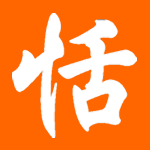Yet, for that brief moment of hearing people quietly discussing what is on your t-shirt is still quite uncomfortable. Fearing the few minutes of uncertainly will come back to haunt you, it lingers in the back of your mind.
高興手違, what does this phrase mean?
高 is “high, elevated”, 興 means “thrive, prosper”, and their compound means “happy, cheerful, willing” in Chinese. 手 is “hand”, 違 means “violation, disobey”, and together, they mean “mistake, blunder” in Japanese, as in手違い (or てちがい).
“Happy [hand] violation”, is it some kind of idiom? Or a sexual euphuism for “happy ending” at one those dodgy massage parlors, which always advertise in the back of free publications? (Note: the missing dot in 違, perhaps the client is not done yet.)
Or it is just complete gibberish.


I was going to suggest 'cheerful masturbation' but your happy ending at the rub and tuck sounds better.
ReplyDeleteOr, it could be precisely what it advertises: A happy mistake, worn hopefully by a happily mistaken t-shirt wearer.
ReplyDeleteGood ol' blending of Chinese & Japanese. Haven't we seen that before...
Maybe they wanted it to say "serendipity," although I have no idea how it relates to t-shirts with dragons on them.
ReplyDeleteOh, also, according to thefreedictionary.com, "happy accident" is an English idiom. I've definitely heard people use the phrase before.
ReplyDeleteThe moral of the story being, don't do literal translations of English idioms, because it doesn't work.
ahaha. I love the "happy ending" comment! Great post!
ReplyDeleteback in the 80's when Kanji or Hanji was the shit,
ReplyDeleteMy mom saw a fat lady that had a kanji saying "PIG"
that was just too much!
Looks more like "Happy Hand Vilation". Could this be come kind of odd prehensile self gratification?
ReplyDelete